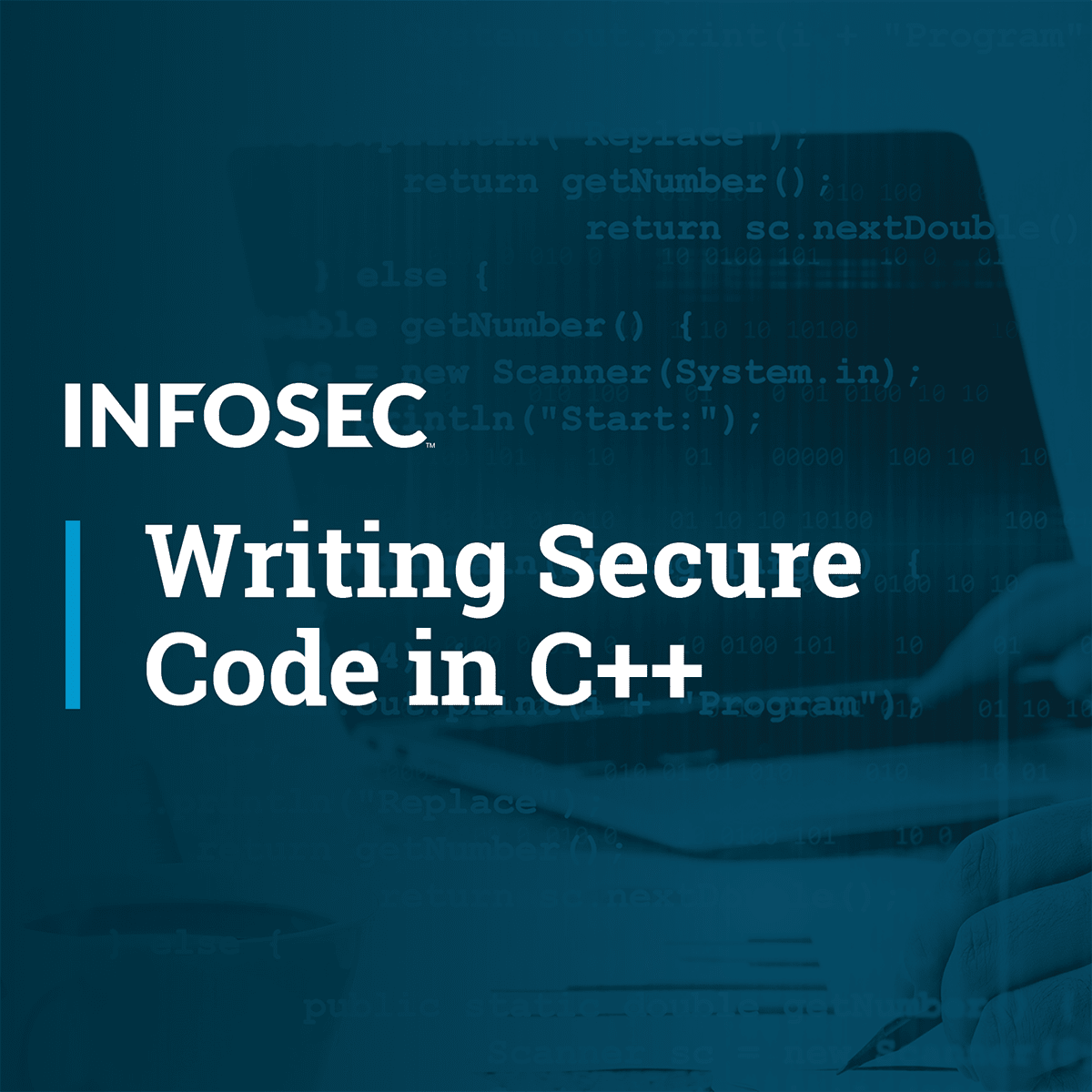
Explore the C and C++ languages. Look at the specificity of the C/C++ languages and how this impacts security, ways C/C++ can interact with the external world, error handling, the execution environment and much more.
What's inside
Syllabus
Random Number Generation
SETUID Bit
Driver Development
Read more
Syllabus
Good to know
Save this course
Activities
Review core coding concepts
Show steps
Begin by reviewing core coding concepts such as variables, data types, and control flow to strengthen your foundation for this course's material.
Browse courses on
C Programming
Show steps
-
Revisit textbooks or online resources to refresh your understanding of core coding principles.
-
Complete practice problems or coding exercises to reinforce your knowledge.
Explore advanced C and C++ topics
Show steps
Expand your knowledge by exploring advanced C and C++ topics through guided tutorials or online courses. This will deepen your understanding of the languages and prepare you for more complex programming challenges.
Show steps
-
Identify specific advanced topics that interest you or align with your career goals.
-
Find reputable online resources or platforms that offer guided tutorials on those topics.
-
Follow the tutorials, complete exercises, and engage in discussions.
Contribute to open-source C or C++ projects
Show steps
Enhance your practical skills and contribute to the broader programming community by participating in open-source C or C++ projects. You'll gain valuable experience and connect with other developers.
Browse courses on
Community Involvement
Show steps
-
Identify open-source projects that align with your interests and skill level.
-
Review the project documentation and select a task or issue that you can contribute to.
-
Communicate with the project maintainers and follow their guidelines.
-
Implement your contribution, ensuring it meets the project's standards and quality.
One other activity
Expand to see all activities and additional details
Show all four activities
Participate in coding competitions
Show steps
Challenge yourself by participating in online coding competitions. This will test your problem-solving skills, expose you to different programming techniques, and provide opportunities to learn from other coders.
Show steps
-
Identify coding competitions that align with your interests and skill level.
-
Register for the competitions and prepare by practicing and reviewing concepts.
-
Participate in the competitions, focusing on solving problems efficiently and effectively.
-
Analyze your performance, identify areas for improvement, and learn from the solutions of others.
Review core coding concepts
Show steps
Begin by reviewing core coding concepts such as variables, data types, and control flow to strengthen your foundation for this course's material.
Browse courses on
C Programming
Show steps
- Revisit textbooks or online resources to refresh your understanding of core coding principles.
- Complete practice problems or coding exercises to reinforce your knowledge.
Explore advanced C and C++ topics
Show steps
Expand your knowledge by exploring advanced C and C++ topics through guided tutorials or online courses. This will deepen your understanding of the languages and prepare you for more complex programming challenges.
Show steps
- Identify specific advanced topics that interest you or align with your career goals.
- Find reputable online resources or platforms that offer guided tutorials on those topics.
- Follow the tutorials, complete exercises, and engage in discussions.
Contribute to open-source C or C++ projects
Show steps
Enhance your practical skills and contribute to the broader programming community by participating in open-source C or C++ projects. You'll gain valuable experience and connect with other developers.
Browse courses on
Community Involvement
Show steps
- Identify open-source projects that align with your interests and skill level.
- Review the project documentation and select a task or issue that you can contribute to.
- Communicate with the project maintainers and follow their guidelines.
- Implement your contribution, ensuring it meets the project's standards and quality.
Participate in coding competitions
Show steps
Challenge yourself by participating in online coding competitions. This will test your problem-solving skills, expose you to different programming techniques, and provide opportunities to learn from other coders.
Show steps
- Identify coding competitions that align with your interests and skill level.
- Register for the competitions and prepare by practicing and reviewing concepts.
- Participate in the competitions, focusing on solving problems efficiently and effectively.
- Analyze your performance, identify areas for improvement, and learn from the solutions of others.
Career center
Software Developer
Computer Programmer
Information Security Analyst
Database Administrator
Computer Systems Analyst
Software Engineer
Web Developer
Network Administrator
Security Engineer
Data Scientist
Computer Hardware Engineer
IT Manager
IT Auditor
IT Consultant
Information Security Manager
Reading list
Share
Similar courses
OpenCourser helps millions of learners each year. People visit us to learn workspace skills, ace their exams, and nurture their curiosity.
Our extensive catalog contains over 50,000 courses and twice as many books. Browse by search, by topic, or even by career interests. We'll match you to the right resources quickly.
Find this site helpful? Tell a friend about us.
We're supported by our community of learners. When you purchase or subscribe to courses and programs or purchase books, we may earn a commission from our partners.
Your purchases help us maintain our catalog and keep our servers humming without ads.
Thank you for supporting OpenCourser.



